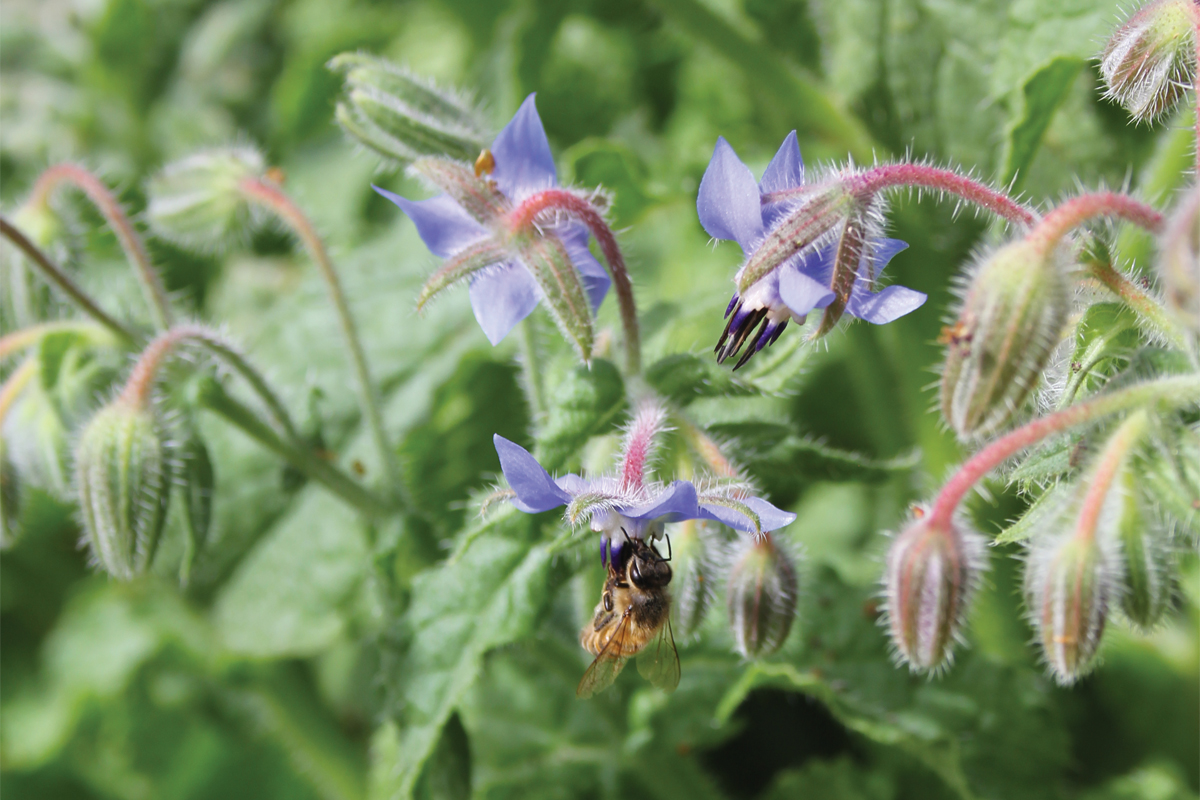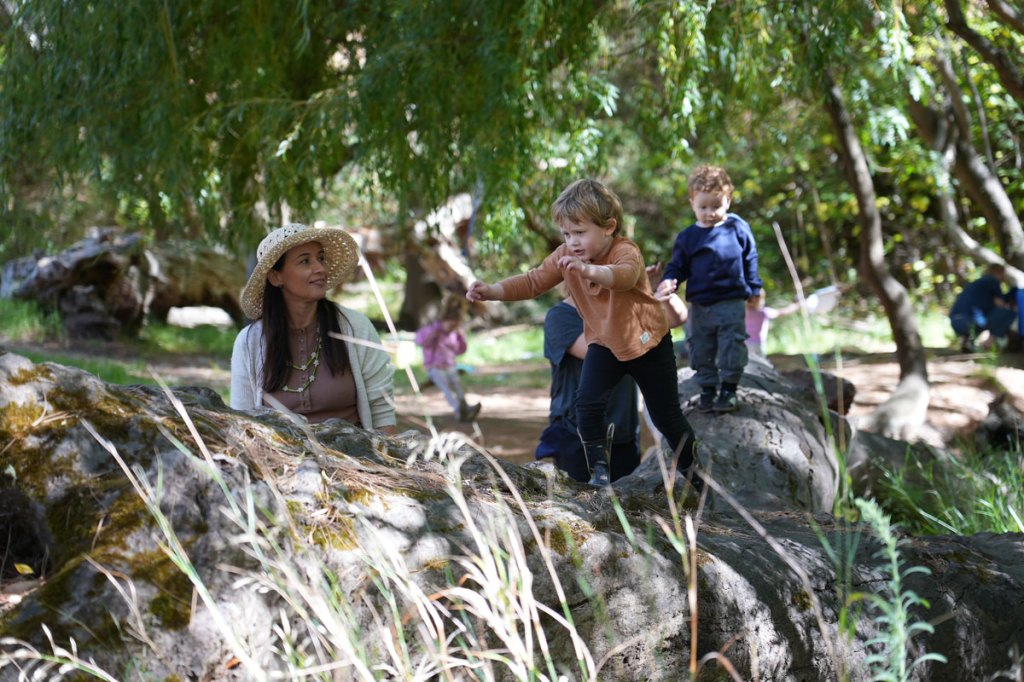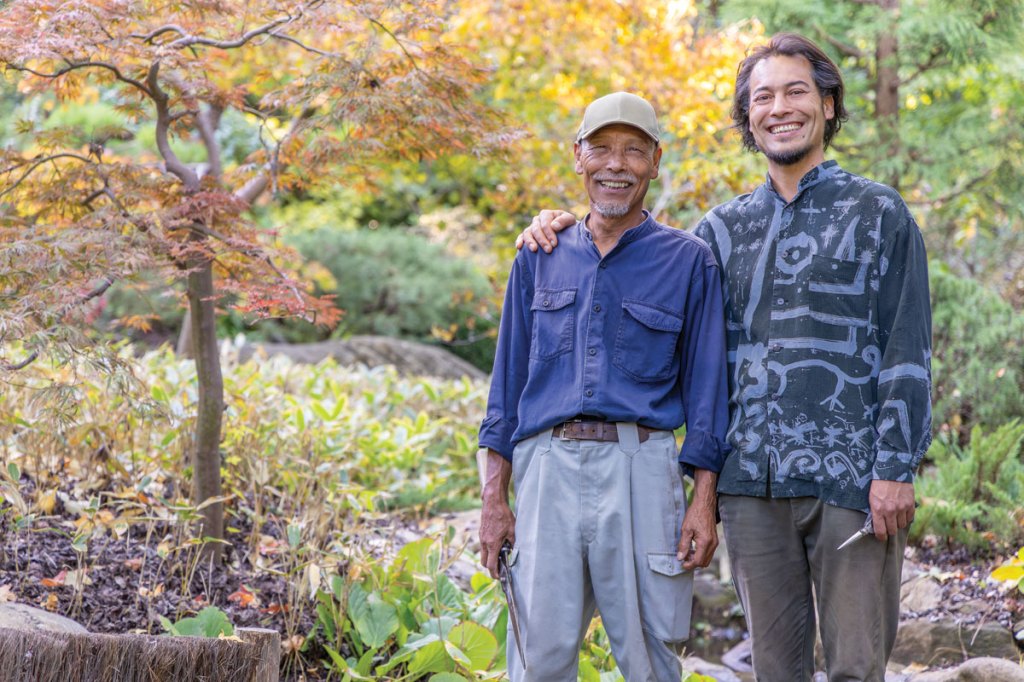Welcome to the bee hub
Wonderful things happen to places and people when like-minds connect, as this group of bee and bandicoot lovers has discovered.

Take a drive through Brownhill Creek Recreation Park, past the caravan park, over the white narrow bridge, along the winding road bordered by steep eucalypt and pine-lined hills, until you reach a most surprising and engaging property with a small farmgate stall out the front. Welcome to The Bee Hub.
It was founded in 2020 by Dr Rossi von der Borch, devoted beekeeper and former lecturer of Indonesian Studies at Flinders University. Under her guidance The Bee Hub has evolved into a vibrant centre for education and community connections.
“I worked at Flinders for many years,” Rossi says. “After a series of departmental reductions, I decided to turn my beekeeping hobby into something more meaningful. Bees are essential pollinators, and their decline poses a significant threat to our ecosystems.”
The hub’s educational programs aim to raise awareness about the critical role played by bees and other pollinators, and to raise awareness of steps needed to protect them. By engaging the community in pollinator-friendly activities, the hub is inspiring a new generation of environmental stewards.
The Bee Hub offers a variety of activities that cater to different interests and age groups; from beekeeping workshops to bespoke honey tastings, there is something for everyone. Visitors can learn about the lifecycle of bees, their role in pollination, and the importance of biodiversity. The hub also hosts community events and gatherings, providing a platform for people to connect and share their knowledge and experiences, while the farmgate stall is a treasure trove of honey, beeswax products, and fresh produce, plus handcrafted items.
“We pride ourselves on offering high-quality, locally sourced products that support our community,” Rossi explains.

Producing her raw honey in small batches, Rossi takes great care in leaving enough honey for each hive to live on, especially through periods of low floral activity. Once extracted, the honey is bottled and placed in the front stall. She is proud to say her honey has even been purchased by customers to be taken as gifts around the world.
A chance meeting with University of Adelaide conservation biologist Dr Jasmin Packer, who was conducting an early morning bandicoot survey with her students across the road, has led to a broadening of The Bee Hub’s conservation offerings with a focus on connecting people with nature.
You might like
One of the most remarkable discoveries at Brownhill Creek has been the presence of a thriving Southern Brown Bandicoot population. These small marsupials have found a haven in the park’s patchwork of habitats.
As Jasmin explains: “The most important thing is that it’s a breeding colony. We were astounded to find them in a public space with human, cyclist and incredibly, dog interaction.”
This has been a significant milestone for conservationists and nature enthusiasts alike. Efforts to maintain and enhance the bandicoot habitat are a priority at The Bee Hub, with Rossi and Jasmin combining their resources, working with local conservation groups, schools, the University of Adelaide and Friends of Brownhill Creek to form the “Bandi Bush Care” group.
Each Friday, they start their meeting at The Bee Hub with toasties for lunch. This meal is an important time for Bandi Bush Care members to relax, share stories and celebrate their camaraderie. Once lunch is over, participants then head across the road and into the epicentre of Brownhill Creek’s bandicoot activity.
Rather than digging holes and adding new plants, the group’s focus is all about supporting nature that’s regenerating by itself.
Jasmin explains: “We’ll notice a new little blue gum seedling, red gum seedling, or a wattle that’s just popping up. If they’re being grazed or trampled on, or if there are no other natives around them, then we protect them by pushing in a stake, putting some wire around them and adding more sticks as mulch for further protection.”

The Bandi Bush Care group’s approach is all about shifting the dial slowly: instead of a wholesale clearing and planting regimen, the group prefers to provide opportunities for existing plants to thrive. In the case of the adjacent wild-oat-filled meadow, tussocks of native Wallaby grass have been identified and weeds continually removed around them to create an ever-widening halo of space for the Wallaby grass to populate and widen its bandicoot shelter and food source.
Often seen as a landscape scourge, blackberries are playing a surprisingly important role in maintaining the bandicoot population. These curious marsupials can happily hop from Wallaby grass to a blackberry bush knowing the thicket of barbed canes acts as a barrier to potential predators, including dogs, cats and foxes. Along the creek line where the blackberries have been removed, there is no sign of bandicoots.
Small pockets of native raspberry (Rubus parvifolius) have been identified among some patches of blackberry. Rossi and Jasmin’s aim is to encourage the spread of these thorny native raspberries, and other dense natives, and so reducing the need for blackberries.
As Rossi says with a smile: “By restoring thick natural habitat, we ensure the survival of our precious bandicoot and other native animals”.
The efforts of The Bee Hub and Bandi Bush Care group are a shining example of how local initiatives can make a significant impact on preserving biodiversity.
Subscribe for updates
Brownhill Creek Recreation Park is a beacon for dogs and their owners to enjoy the great outdoors. However, interaction between native fauna and dogs has not always resulted in a positive outcome for the local wildlife.
Identifying solutions for dogs coexisting with our smaller furry friends was the impetus for Rossi and Jasmin – with the help of colleagues – to create a research paper on the impact of dogs on- and off-leash in natural areas.
The result of their hard work was the installation of dog gates in the bandicoot sensitive areas, reminding owners to keep their dogs on a lead while travelling through the space to maintain harmony between pets, owners and wildlife.
Jasmin’s history with Brownhill Creek stretches back five generations, when the Packer family grew celery crops for sale at the Adelaide markets. Understanding the damage that this past intense horticulture caused across Adelaide’s floodplains has been a driving force in her passion to restore this valley’s natural equilibrium.
“I feel deeply responsible for restoring the land after the damage. We owe it to future generations to leave the land in better condition than we found it,” Jasmin says.

Partnering with traditional custodians is also a fundamental value at The Bee Hub. Acknowledging the enduring connection of Kaurna people with the valley, Rossi and Jasmin strive to honour Indigenous knowledge and practices through their activities.
They both share the same vision in creating a space that fosters cross-cultural connections and environmental stewardship.
“Our community is diverse in every sense,” Jasmin remarks. “Geographically, demographically, neurologically and environmentally, we aim to build an inclusive place where everyone feels a sense of belonging.”
Together they are committed to research and innovation.
“We’re exploring new ways to enhance our educational programs and community outreach,” Rossi says. “Our future activities will continue to focus on sustainability, biodiversity and cultural exchange.”
Visitors to The Bee Hub can partake in foraging activities helping them learn about the diverse array of edible plants that thrive in the area. The Bee Hub also offers a variety of honey types, each with its unique flavour profile.
“Our honey reflects the different blooms and seasons of the valley,” Rossi explains.
From weekly morning teas to Bandi Bush Care, you can find The Bee Hub at 214 Brown Hill Creek Road, Brown Hill Creek … it’s a hive of activity.
For more information contact [email protected].
This article first appeared in the 2025 March issue of SALIFE magazine.

